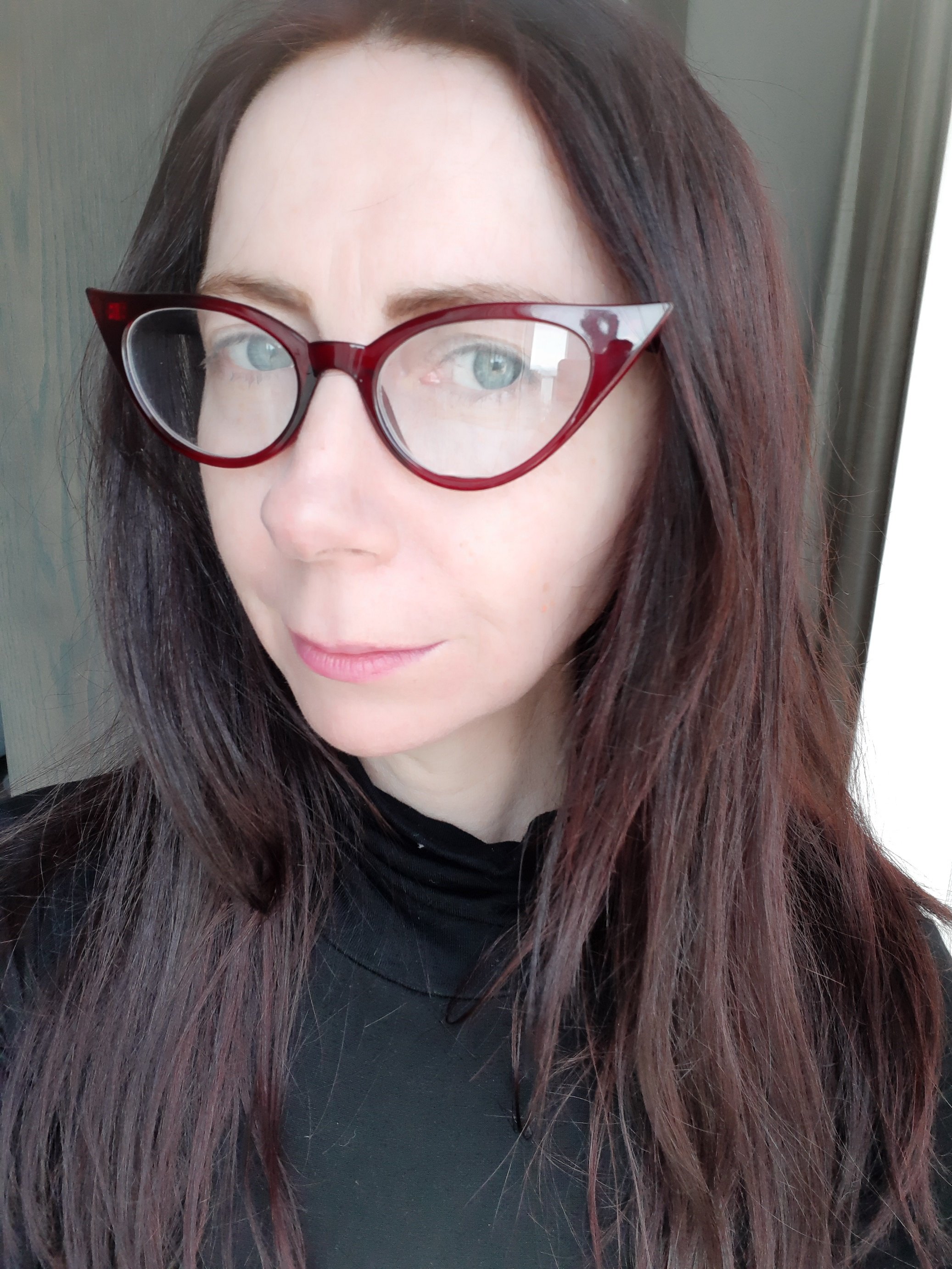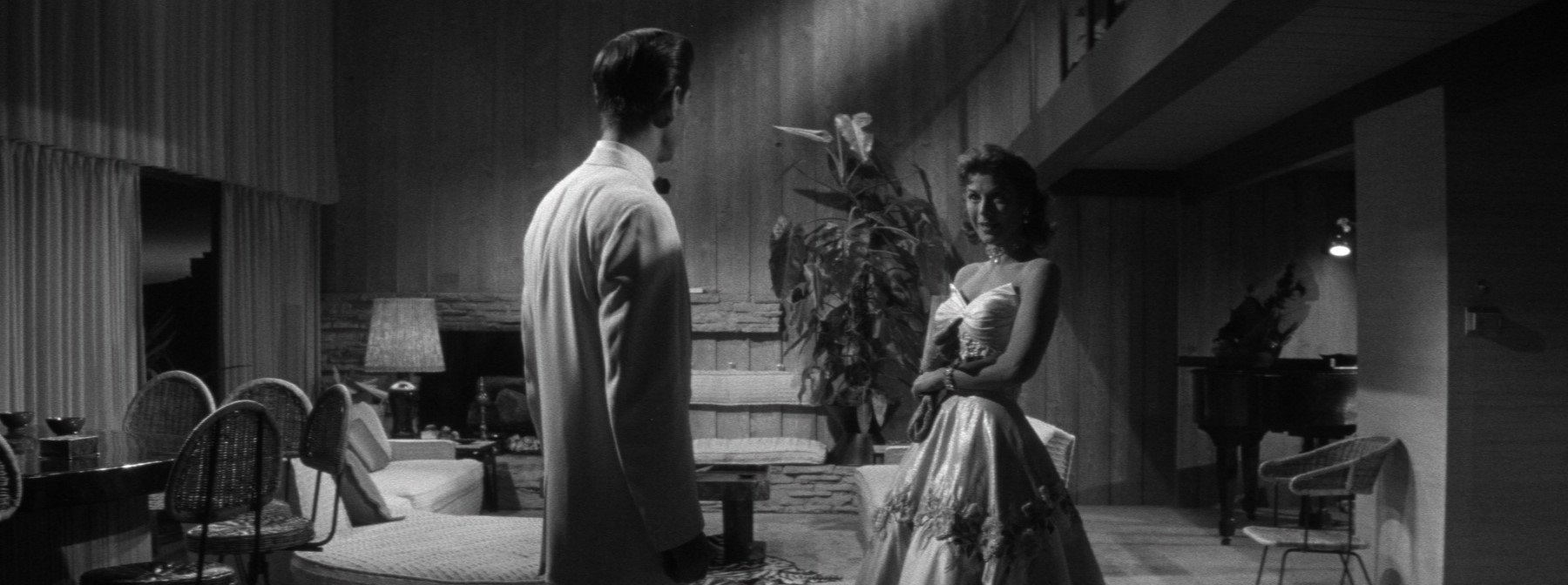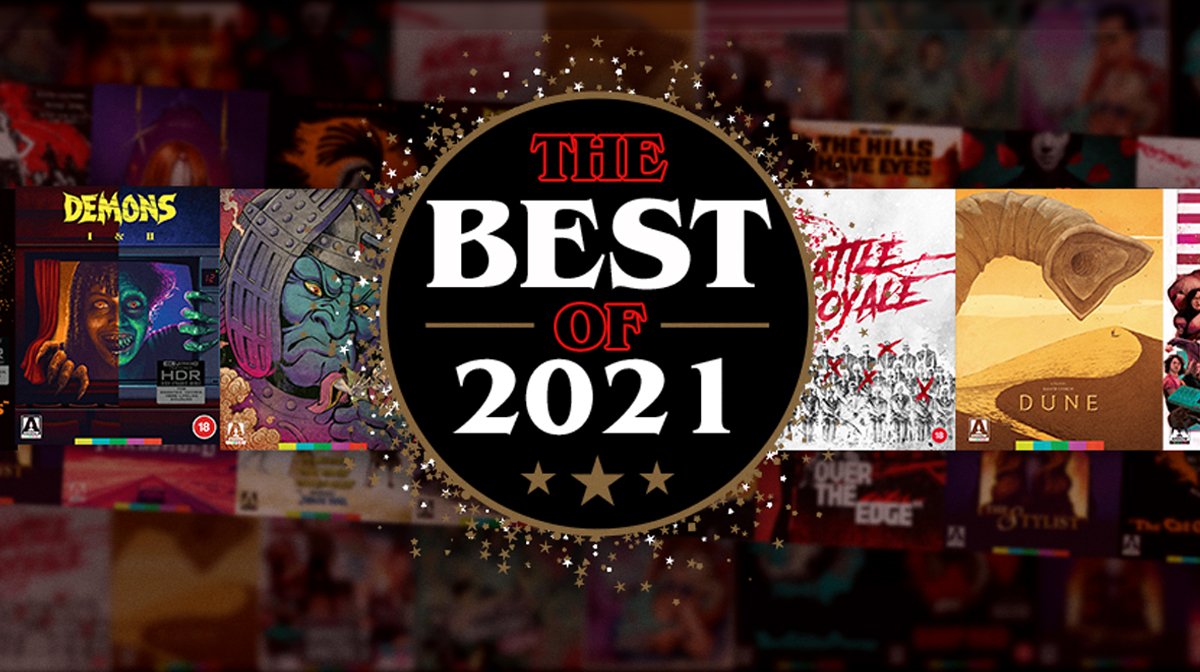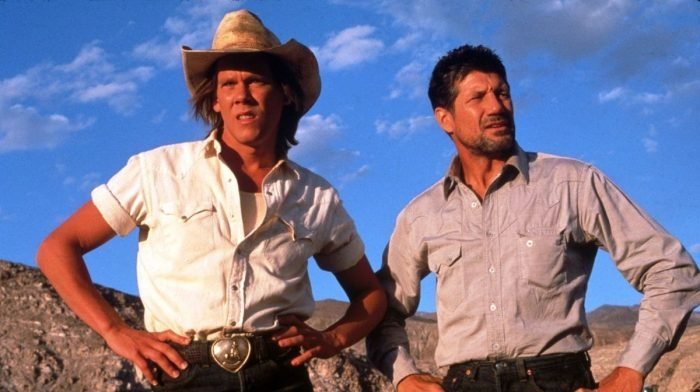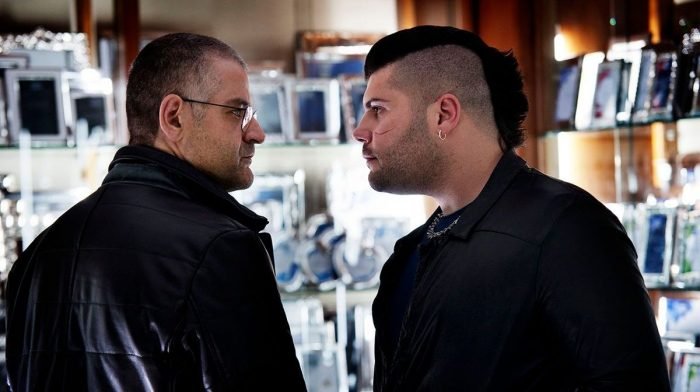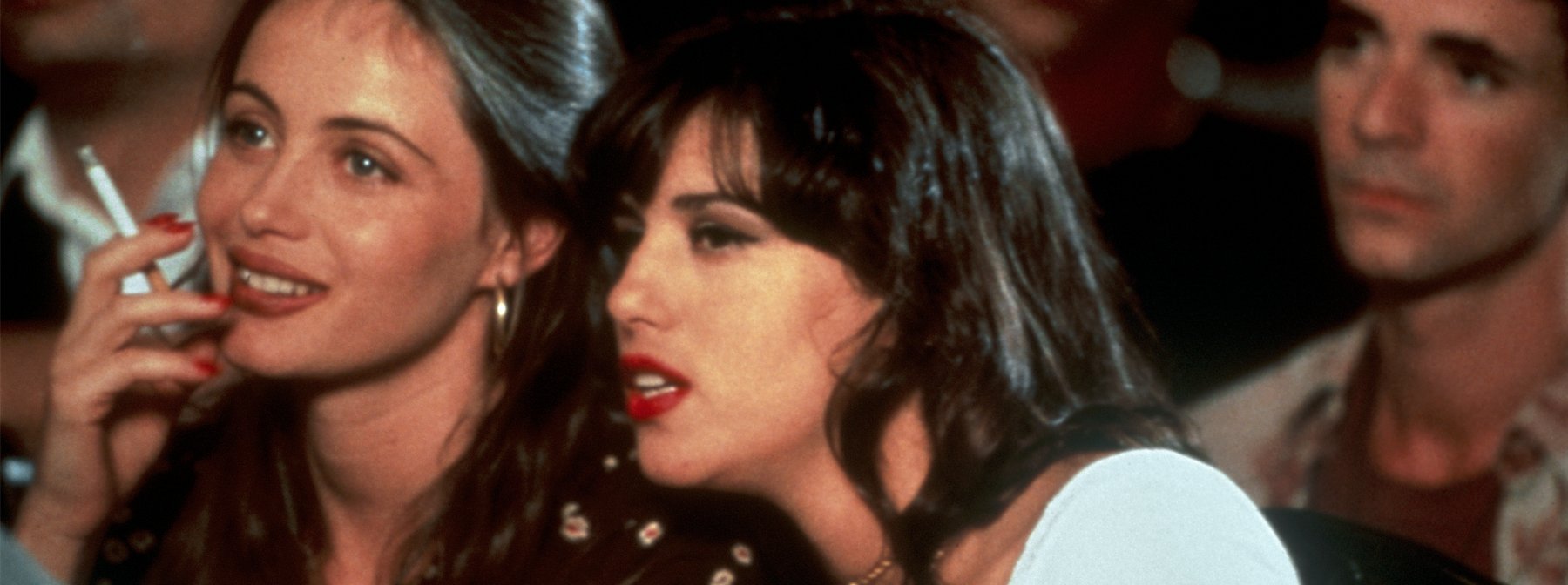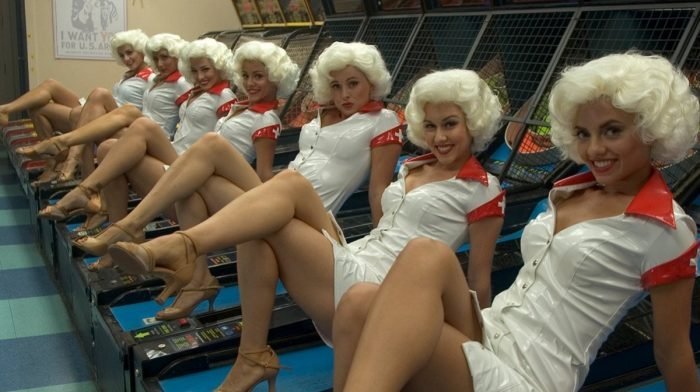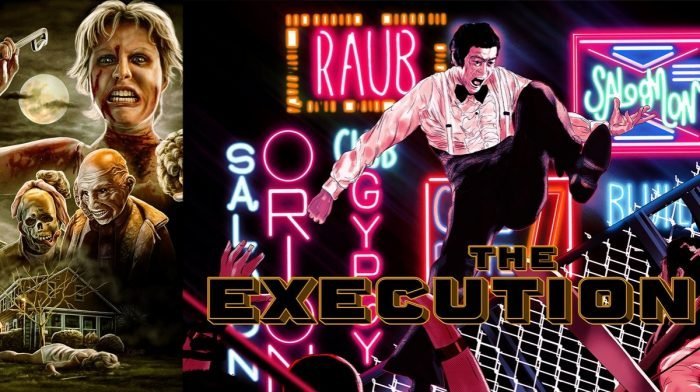Sure, we all had a big 2020, but renaissance woman Brea Grant had a really big 2020. Releasing her graphic novel “Mary: The Adventures of Mary Shelley’s Great-Great-Great-Great-Great-Granddaughter”, directing her sophomore feature 12 Hour Shift, writing and starring in Natasha Kermani’s Lucky, and – working purely in front of the camera in her role as actor – 2020 was the year audiences around the world were also left awestruck by two films in which she has a central acting role, Jeremy Gardner and Christian Stella’s After Midnight (released originally in 2019), and Jill Gevargizian’s The Stylist. And the good news is, both of the latter are available to buy on our website or view on ARROW; let the Brea Grant fan-con can begin in earnest (all in the comfort of your own living room).
Aside from the pure quality and joy of her work, it is by oscillating in her professional roles from in front of the camera to behind it in a variety of capacities that makes Grant not just an impressive talent, but also places her positions her as a key inspiration for other women horror filmmakers. Brea recently took time to chat to us about the different threads of her career, with an emphasis on her work as a performer in The Stylist and After Midnight especially.
Some of us might most immediately recognise you for your work as an actor, but since your debut 2013 feature film Best Friends Forever (which you directed, co-starred and co-wrote) it’s become really apparent you have a pretty vast skill set. What prompted this expansion?
Brea Grant: At my core, I’m an optimist. But I’ve chosen the most pessimistic and soul-crushing industry as my life’s work. I have weekly (maybe daily…) moments of what-the-hell-am-I-doing. I started the industry as an actress and I had a lot of success early on booking shows like Friday Night Lights and Heroes but then had a huge lull. Because things happened so quickly, I felt like huge things were in store for me. This city can be so confusing. Like agents were calling me on the phone telling me I would be starring in my own franchise and buying a house in Malibu by this time next year! I spent so much time, effort and money trying to “make it” but I never quite did in the way I thought I should. And what makes me happy isn’t what makes most people happy but that’s something I constantly have to remind myself. Because I didn’t get the huge franchise movie, was eventually dropped by every agency and had to essentially start over, I felt like a failure. That’s around the time I co-wrote Best Friends Forever with Vera Miao. But making that movie was one of the things that kept me going. That and that I’m unable to turn off my optimism. Like Harriet [her character in the film], a lot of my characters are people who have failed but are still hoping things will turn around. I see a lot of myself in that.
With Mandy in 12 Hour Shift, Harriet (and to an extent, May in Lucky), they have a lot of potential but something holds them back (with Mandy, it’s obviously an opiate addiction) … I like exploring what we internalize as failures. We see them as personal failures but maybe they’re just life paths and that’s okay.
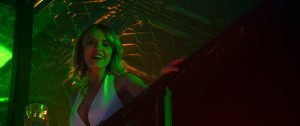
Brea as Olivia in The Stylist (2020)
What first sparked your interest in moving from acting to directing?
I spent the first 10 years of my career just simply trying to do what someone else asked of me. I’m not saying that like it’s a bad thing. That’s the job of acting. If a director has a specific vision, as an actor, I want to give them what they are looking for. I view acting, writing, directing, all of it, as going to work every day. Yes, there’s a craft to it but it’s also how I paid my bills for most of my adult life so I want the person who hired me to be happy with me. I love when directors or writers come to me for thoughts and ideas but up until I started directing, that happened pretty rarely. Maybe due to the projects I was on but also probably due to the roles I played – mostly best friends/someone’s girlfriend type roles. To be clear, none of that is bad. Directors work in different ways and if they have a specific vision, it makes it easier for me as an actor. I remember Rob Zombie asked me at one point what he thought my character’s back story was in Halloween II and I was taken aback. I couldn’t believe he would even ask my opinion. It made me realize I had something to offer in that arena.
How does your background as an actor influence how you work as a director?
On sets, I try to be very in tune with my actors but I also want to give them space. Once I have hired someone, it is a collaboration but it’s heavy on their end. I tend to do the opposite of what I experienced for most of my career. I want the actor to take the reins on the character. Of course I have an idea of how I want it to go but letting the actors do their thing is something I really believe in. I trust the actor. That’s why I hired them. Same with the crew. If the production designer has a completely different idea than I have, I try to see her vision before I completely throw it out. The crew/cast will find things I never dreamed of.
I worked on a show called EastSiders and learned from Kit Williamson (who is also in 12 Hour Shift) the idea of an “actor’s take.” He always gave the actors a take to do whatever they want. Throw out the script. Improv. Whatever. I used that on 12 Hour Shift and it worked amazingly well. Particularly with some of the actors who are genius improvisers but also with someone like Chloe Farnworth who doesn’t come from an improv background. She loved to go off and ramble and I ended up using a lot of her footage. On days when we were having trouble finding the right rhythm of the scene or tone, those takes are our lifesavers. Obviously I can’t do this when working in television but I try to use the same rule. If I find that I’m pushing an actor to fit the mold I have in my head, I step back and try to reframe.
To go from starring, directing and writing in Best Friends Forever all those years ago now, then more recently to writing and directing 12 Hour Shift, then to writing and starring (but obviously not directing) Lucky – how do you approach jobs like both The Stylist and After Midnight which return you specifically to the role as actor?
Directing has made me a better (or at least more understanding) actor. All directors work differently and I try to be as communicative and present as possible for what each director needs. If a director wants my input, I give it. If they have a vision for the way my character would sit or speak or whatever, I listen to that vision. I really believe in having someone be the captain of the ship. Movies need strong vision. So mainly, I just try to be very present, learn from what I’m watching and show up in the way I would like an actor to show up for me. At this point in my acting career, I know the work I need to put in to make myself comfortable and I know what I need to ask for in order to make set a productive workspace for me. In my downtime, you can find me with a book in the corner trying to stay out of the way.
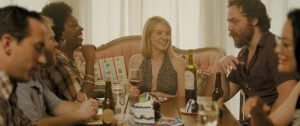
Brea as Abby in After Midnight (2019)
I love the tension in After Midnight between your character being both absent and present – so much of the first part of the film especially she is presented in flashback, almost like a ghost that exists solely in the memory of another character and is presented that way in the film. How did that impact how you played that part?
I have to give credit to Jeremy and Christian for crafting the way the audience experiences the character of Abby. The camera is often Hank’s POV of Abby or at least, very focused on Abby. That helped a lot with the visual storytelling. As an actor, there was a progression in the flashbacks for me. From the beginning of the relationship when everything was great and it felt like the characters had their whole future ahead of them to the scene at the dining room table where it was clear that things were not living up to Abby’s hopes, the relationship montages really followed Abby’s emotional progression and frustration. It was all on the page though. This script felt so personal to me when I read it. The first time I read the big monologue, I cried. I immediately saw the entire thing from Abby’s perspective. I was never on Hank’s side even though he is the protagonist. To me, he was a manchild who would never appreciate what he had in front of him until it was almost gone and even though Jeremy made the character sympathetic, I still feel frustrated with Hank when I watch the movie. I’m not a person who enters my character’s world in any sort of method way AT ALL but in this movie in particular, I felt like I was 100% Abby. Her thoughts and fears were really natural because they are some of the deepest ones I think I and a lot of my female friends have. She reflects not feeling good enough for the people who are supposed to love her the most and that really hurts.
Like so much of your own work as a writer and director, one of the things I love about The Stylist is that it focuses quite explicitly on really complex relationships between women. How did you frame Olivia’s place in that story and the film’s broader themes seeing the film really first and foremost pivots around Claire’s choices and actions, and how did that impact the way you played the part?
We’re all the heroes of our own stories. I keep that in mind any time I’m acting/writing/directing. I only read the script for The Stylist all the way through once because I felt like I shouldn’t know what Claire was going through. For me, it was about Olivia’s story, which centered around her relationship and her wedding. Claire was a side character in the Olivia story. (As a side note though, this movie is brilliant and Claire is such a fascinating character. She’s the kind of person we see portrayed often by men but is so rarely depicted by a woman. I love that about this film.) But as Olivia, I couldn’t care about Claire except how she related to me. Jill and I tried to keep me in “Olivia’s world” as much as possible aka not knowing about Claire’s mental health issues or her psychopathic tendencies. This is hard for me because I love watching dailies and seeing the cool set ups so I cheated a little but overall, I tried to not be aware of what Claire was doing when I wasn’t shooting. It was nice because Najarra and I were living together through the process. She was a producer on the project so she was very busy and meanwhile, I ran around Kansas City going to museums and cool restaurants. In a way, that was reflective of the movie with Claire being the more serious one and Olivia just living in her universe.
